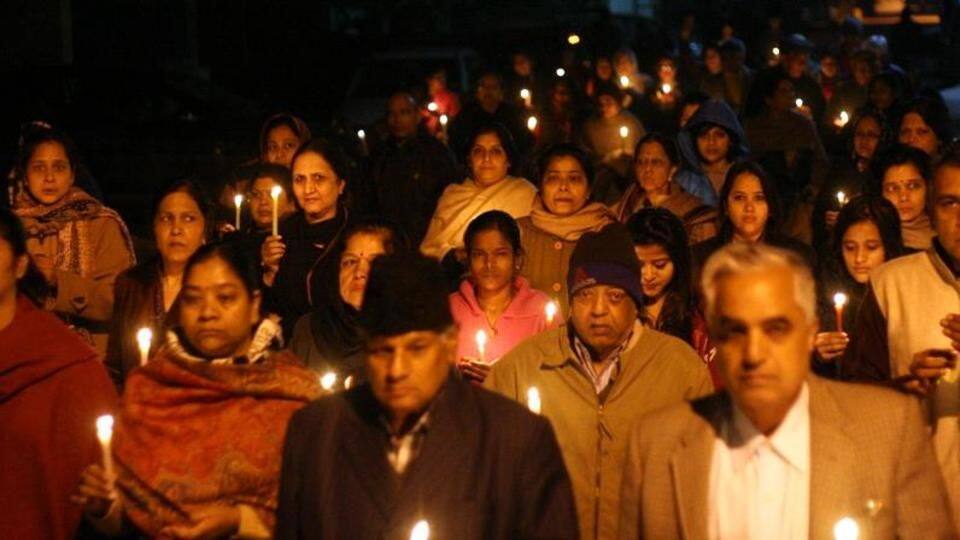
Not much has changed in the five years since Nirbhaya
What's the story
A rape incident needs to stand out to get noticed in India.
One did, in a way that created shock waves around the world. The ghastly gang-rape and subsequent death of Jyoti Singh in 2012 forced India on its feet to address the situation.
However, five years and a few rape-law amendments later, we are still where we were when Nirbhaya was alive.
No improvement
Justice, health and legal services still unavailable to rape victims
Rape survivors are still shamed for the crime they didn't commit. The justice system is as elusive as ever, the government as apathetic, the doctors and policemen as insensitive and unyielding.
The victims too remain unaware of their rights and the provisions available to them according to new laws.
A recent report by the global non-profit Human Rights Watch (HRW) only solidifies the claim.
Information
HRW report details 21 rapes from Haryana, UP, MP, Rajasthan
The HRW report accounts 21 rape cases from Haryana, UP, MP and Rajasthan, where maximum rapes are reported in India. The survivors in 10 of these cases were minors when they were assaulted. The findings are based on interviews with people involved in the cases.
Apathy
Police reluctant to file FIRs, push for out-of-court settlements
The report finds that rape survivors from poor families are often asked to "settle" the case and not lodge a complaint, more so if the abuser is influential.
Several victims also alleged that cops judged and mocked them instead of providing timely help.
In all of the 21 cases, the police were either unaware or ignored procedures made to assist victims and their families.
Information
Note: It is compulsory for cops to file rape complaints
The amendments introduced in 2013 have made it mandatory for the police to register a rape complaint. The cops who refuse or fail to file an FIR can face imprisonment up to two years under section 166A of the Code of Criminal Procedure Act.
Failure
Doctors lack sensitivity, don't provide survivors adequate information
The 2014 guidelines made the medico-legal assistance processes more sensitive towards victims. Among other things, they banned the "two-finger test" used for vaginal examination, and standardized the collection of forensic evidence.
However, only nine states have so far adopted the revised rules, and don't always follow them. Healthcare experts don't provide the first-line support and information to survivors as they should, claimed the report.
Loopholes
Government schemes marred by poor implementation
The Rs. 3,000-crore Nirbhaya Fund, created in 2015, mandates that each victim gets a minimum Rs. 3 lakh compensation but survivors either get it after a long wait or don't get it all.
Moreover, the report said that few people knew about the 151 One Stop Crisis Centres across India that were created to provide victims integrated police, legal and medical services.
Solution
Key suggestions made by the Human Rights Watch
Among other things, the HRW recommends that there be regular training and refresher courses to better equip officials in police, judiciary and medicine in handling sexual-violence cases.
It also suggests that action be taken to ensure transparent and smooth working of One Stop Crisis Centres, and enacting a witness protection law to safeguard females and their families from backlash for reporting violence.